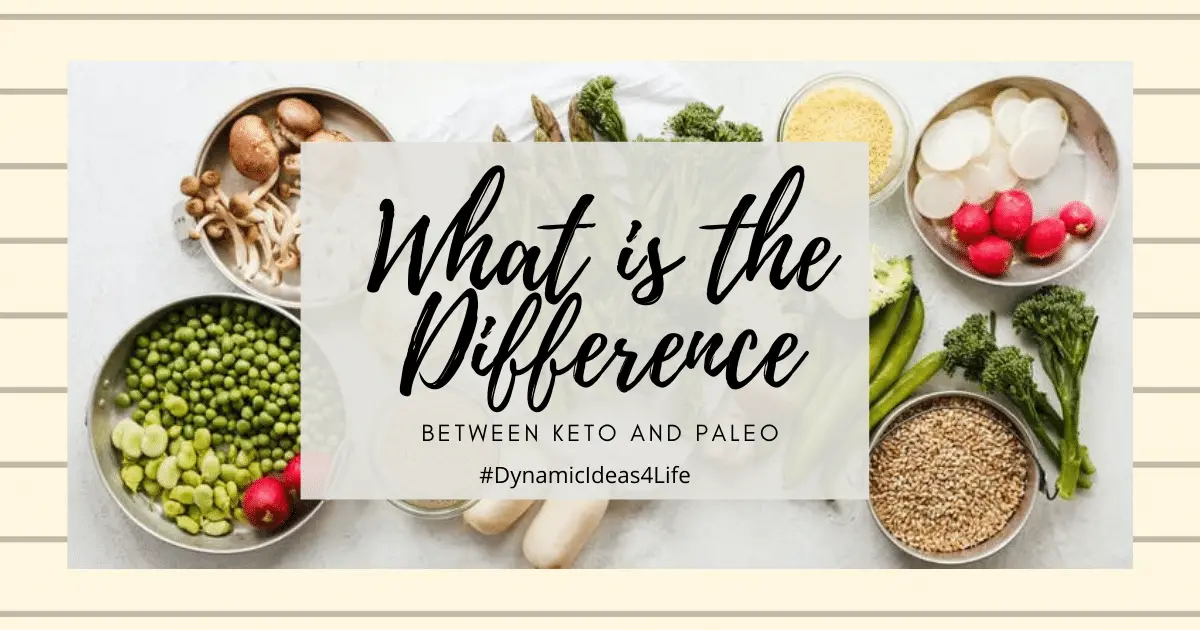
Hi Guys, How are you? Today I’m going to be asking and then answering a question. What Is the Difference Between Keto and Paleo Diet? Basically low carb dieting – the two main types.
This article is for anyone interested in finding out about what is better – keto vs paleo weight loss. Both are very popular low carb diet options that are in ways quite similar. Keto is just generally low carb but Paleo is kind of what diet you’d expect a caveman to live off. Basically off the land. A mixture of meat and plants etc.
Kind of the same thing whichever way you look at it!
Both diets work by triggering ketones for fat loss instead of burning glucose. The usual chemical process that happens for people that regularly consume carbohydrates. Although there are some differences between the two. Mostly to do with the ratio of things like fats, protein etc. Exactly why many low carb diets have different names.
What Is the Difference Between Keto and Paleo Diet?
1# – Ketogenic Diet Information
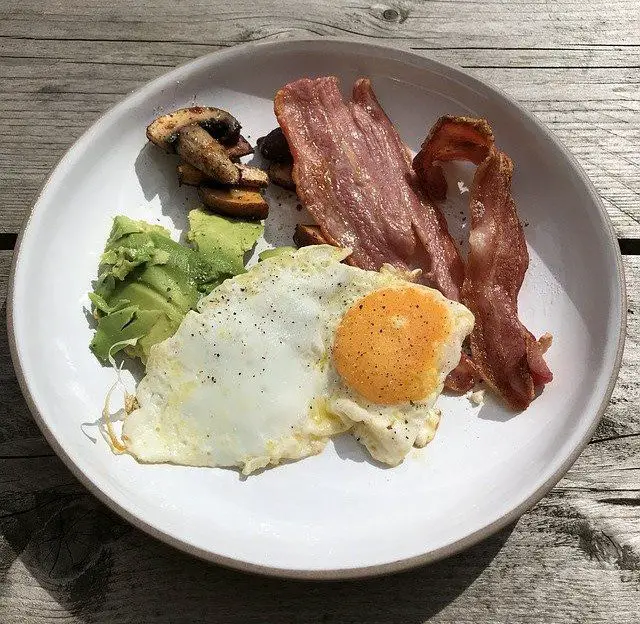
The keto diet is a low-carbohydrate, fat-rich consumption method that has been utilized for ages to prescribe particular therapeutic health. This nutrition is getting significant consideration as a possible weight-loss plan due to the low-carb diet fashion. The ketogenic diet is peculiar for its exceptionally high-fat content, typically 70% to 80%, though only a balanced protein consumption.
There is no ketogenic diet with an accurate proportion of macronutrient carbohydrates, protein, and fat.
The ketogenic diet typically decreases total carbohydrate consumption to less than 50 grams a time. Less than the quantity observed in an ordinary plain bagel. It can be as low as below 20 grams a day. Modern ketogenic sources frequently recommend a proportion of 70-80% fat of total regular calories. 5-10% carbohydrate, and 10-20% protein.
2# – is a Ketogenic Diet Safe?
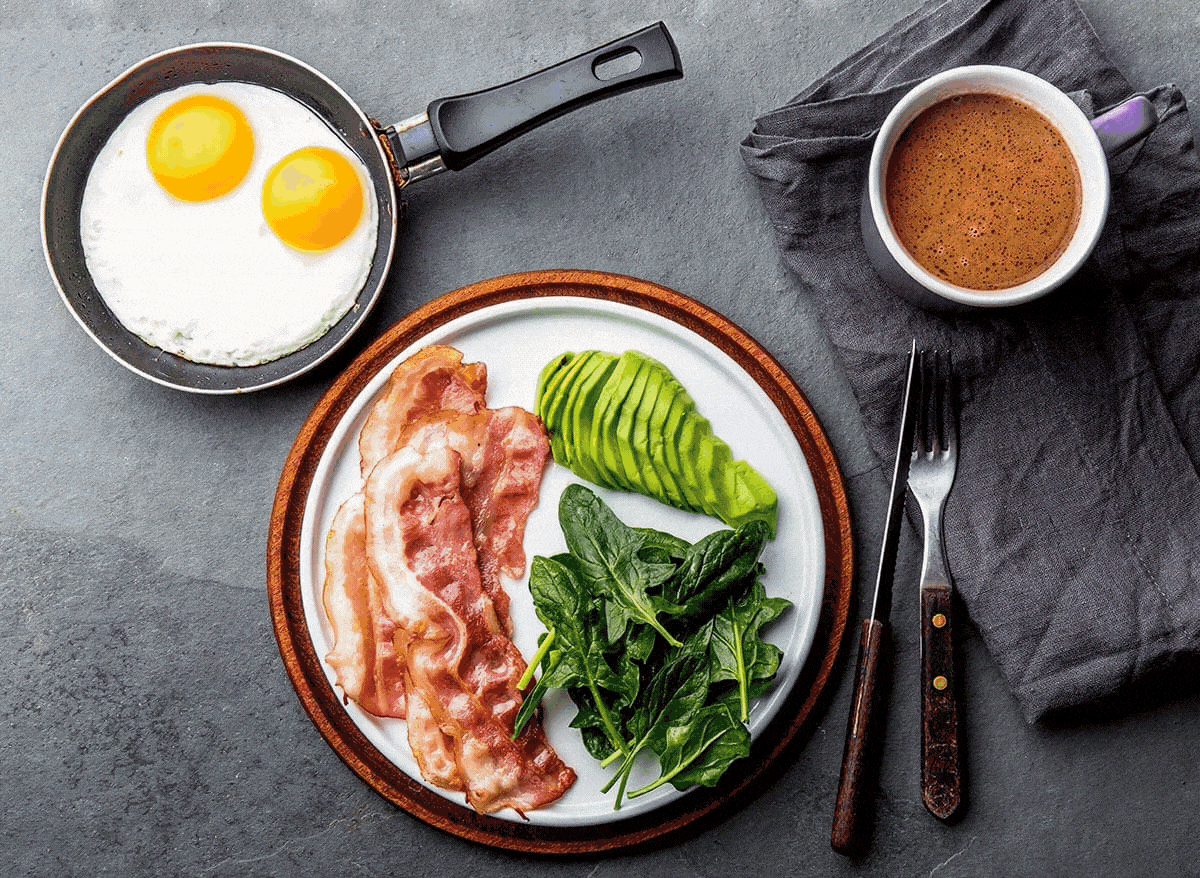
In the worst-case scenario, the keto diet could induce low blood pressure, organ stones, illness, mineral deficiencies, and a risen risk of heart attacks. Extreme diets like the Keto diet could also produce social isolation or upset eating.
>>Keto is not safe for people having any diseases concerning their pancreas, liver, thyroid, or gallbladder.
Another negative impact of the Keto diet is low energy and indigestion. In this situation, one idea is to supplement with digestive enzymes. This is totally optional but one product that may help out is KApex by Bioptimizers.
Read my review here: Bioptimizers KApex Keto Optimizer Review
3# – What is the Keto Diet Good For?
On the other hand, the keto diet does have it’s good bits. The main thing is it can help with is losing weight. Otherwise, if done correctly it can also boost energy levels. Exactly why people do keto for different reasons. The truth is there is definitely 2 sides of the coin where keto is concerned. Some will say it is good whilst others will say differently;
4# – What Is Paleo Dieting?
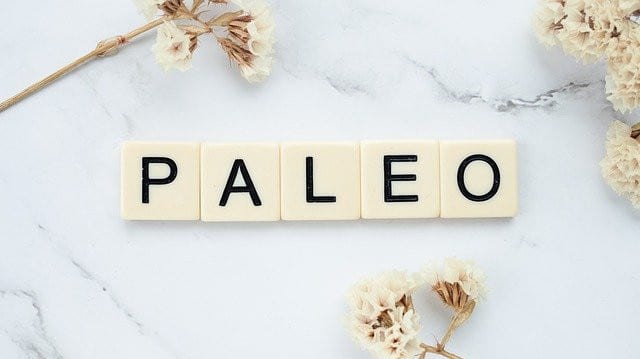
A paleo diet typically involves protein-rich meats, fish, fruits, herbs, nuts, and grains meals. The type of foods that in history could be taken by hunting and collection. The paleo diets goals are to consume foods that were ordinary when agriculture developed around 10,000 years ago. These diets involve farm products, vegetables, and cereals.
Seldom mentioned as the old intake. The Paleo diet is supposed to join with the foods consumed by ancient people, with importance on healthy foods. These include natural herbs and fruits, grass-fed and naturally-raised meats. Plus wild-caught fish, eggs, nuts, and grains.
Additionally, avoiding all prepared foods and sugar further eliminates all maize, dairy products, and beans.
Paleo is excellent for overall digestive fitness and firm performance. It is additionally a higher sustainable diet plan than Keto.
5# – Is Paleo Safer than the Keto Diet?

However, the Paleo diet isn’t adequate for maintained weight loss. As it is very challenging to stay dedicated to each diet that is exceptionally conditional on one or more food sections. Not taking sufficient calcium raises the risk of osteoporosis, rickets, and bone cracks. Chronically low carbohydrate consumption may start to overuse fat for strength and can lead to ketoacidosis.
Medical guidance is suggested for those on the paleo diet. Particularly for anyone with heart, kidney, liver, or pancreatic disorder or who is involved in keeping the very low-carbohydrate version of the intake. In this respect, it really does not differ from keto very much at all. If you decide to try this diet out speak with a GP first.
6# – What Can You Eat in a Low Carb Diet
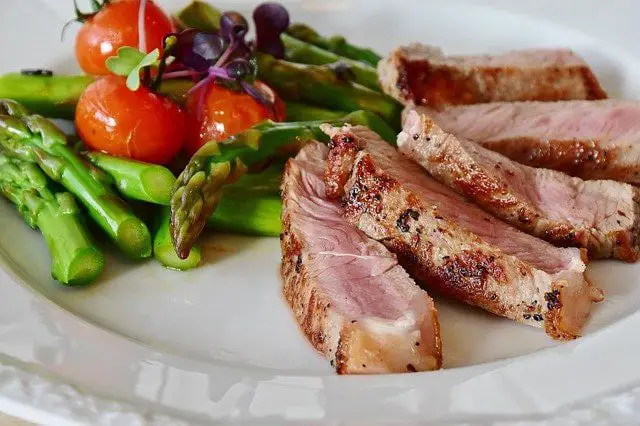
A low-carb diet limits carbohydrates such as those obtained in cereals, starchy vegetables, and fruit. This mostly excludes certain types of foods leading to a higher intake of protein and fat. Various kinds of low-carb diets exist. Each diet has different limitations on the types and quantities of carbohydrates you can consume.
A low-carb diet is commonly practised for weight loss. Any low-carb diet may have fitness advantages behind weight loss, such as decreasing your hazard of type 2 diabetes and metabolic symptoms.
Low-carb diets have been successful for decades. They practised to be extraordinarily uncertain but have lately achieved mainstream recognition. Low-carb diets lead to produce higher weight loss than low-fat diets, at least in the short-term.
What Are the Dangers of Low Carb Dieting?
Low-carb diets do have problems similar to other diets. Comprehensive research infers that a low intake of carbs increases the hazard of early mortality and death from several incurable illnesses. Consequently, scientists recommend dieters to stay away from low-carb diets.
These include both Keto, and Paleo. Plus another I haven’t mentioned is the Atkins diet. All 3 are low carb diets.
Every diet has healthful perspectives at first, but it can be critical for your body. As well as both mental and physical health for the long term. If you’re proceeding to try any diet, select a method that satisfies your lifestyle. Food choices, and personal fitness goals.
While most specific diets tell you about restricting carbs, in various forms and to fluctuating degrees, what they have in common is that they are conclusively many conditional ways of consuming. And that’s not the correct way for many people.
I will conclude by offering my thoughts on why this might be true but also why you should keep on open mind.
In Conclusion
Whether you choose to try out any low carb diet. Not just keto or paleo. One thing to consider is the current state of your health. Do you have any pre-existing health issues? Are you on any type of medication? You should speak to your GP in any case but if any of the above then definitely you should. No excuses.
I wouldn’t personally write off the Keto or Paleo diet myself. For some people, they can tell you that for them this method of dieting has been a complete success. The video above is one example. There are only a few comments but one of them says that “the woman in the video has no idea what she’s talking about”.
This I’d make a pretty safe bet is only the tip of the iceberg if you look around on other websites. There is a lot of division between Keto and other Low Carb diets. I wouldn’t let this put you off but at the same time take care, I say.
Do your research before.
Anyway, I have 2 recommendations here. Oh and a free EBook if you’re interested.
My Recommendations;
First up is the Custom Keto Diet. If you would like to try Keto or even would just like to find out a bit more information. Read my product review here. This is an 8-week diet plan tailored to your own dietary requirements, and preferences. I personally think this could benefit anyone that has their mind made up about trying keto.
Secondly, this is marketed as being a product for Women only but I think there is some relevance here. If you are put off by the idea of low-carb dieting after reading this post. Another idea for a diet plan you might like to try is carb pairing.
Also, known as Japanese Flavor Pairing.
Read more about this in my review for the Cinderella Solution ❤
Then as for my Free EBook. This is EatStopEat – The Zen of Nutrition’ by Brad Pilon. See below;
This is the perfect guide to read before starting any diet. It does not have any diets or recipes inside but it’s definitely worth a read. This will help you develop the right mindset before getting started with any kind of diet. Including Keto and Paleo. As well as pretty much ever other kind there is.
YOUR FEEDBACK
Finally, if you have read this whole post. Thanks for your time, and please do visit again. If you think this post may be helpful to others please share it with them, and your other contacts on Social Media.
Any questions or feedback please leave in the comments section below, and we shall try to respond in a timely manner. Your feedback is important so any experiences you would like to share about keto, paleo or low carb dieting will be great to hear for you.
Each message I will be very happy to read, and if you’d like to read more from me you can also subscribe to my email list below.
#ketogenic diet information #keto vs paleo weight loss
Thanks Again. Take care because you are worth it.
Stay Dynamic x
Alex B. Chivers
#Di4L
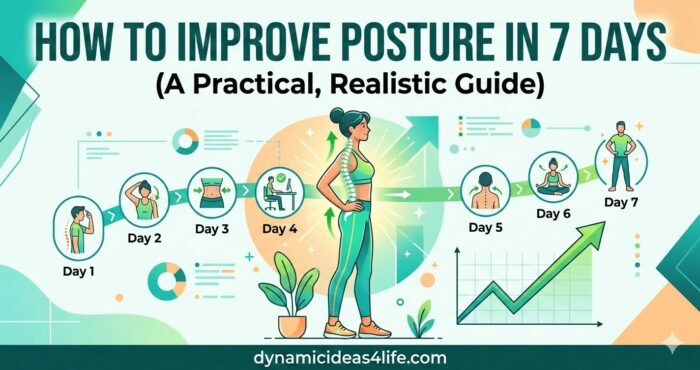

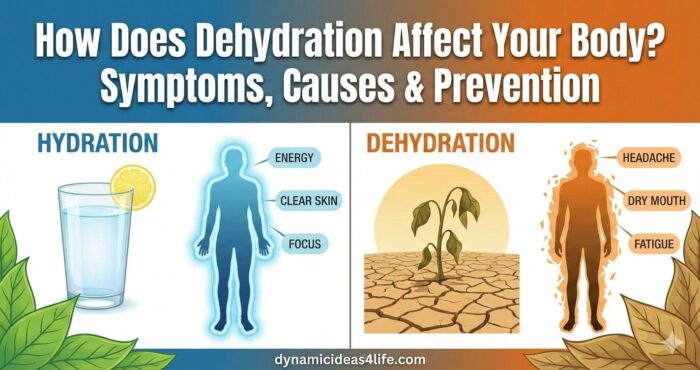
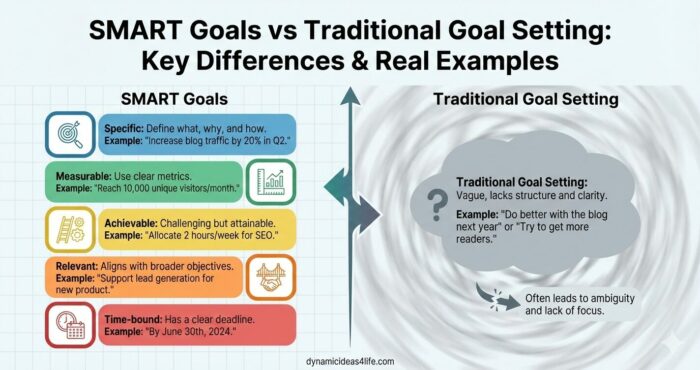

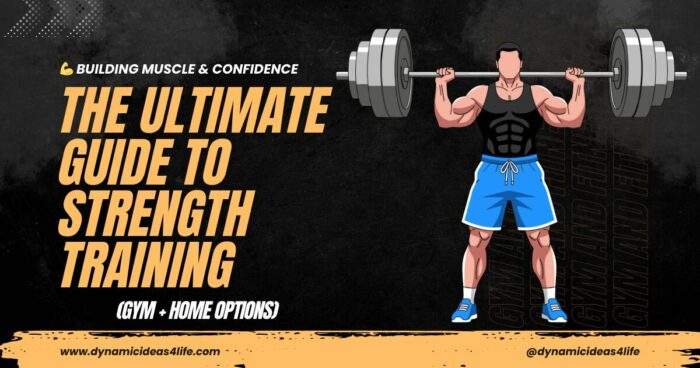
Anxiety and Depression BiOptimizers blood pressure supplements blood sugar control blood sugar support supplements cognitive function digestive enzymes Digestive Enzymes Supplement Digestive Health digital products Dr Sam Robbins Exercise Gut Health Gut Health While Travelling Health Tips for Travelling Healthy Living heart health HFL How To Lower Cholesterol insulin resistance joint health supplement Keto keto dieting Keto Diet Weight Loss leaky gut supplements leptin resistance Magnesium deficiency Matt Gallant mental health multivitamins Nootopia Nootropics Probiotics Probiotic Supplements reverse type 2 diabetes stress and anxiety stress relief vitabalance vitapost Wade Lightheart weight loss articles weight loss diet plans weight loss product reviews weight loss supplements weight loss tea

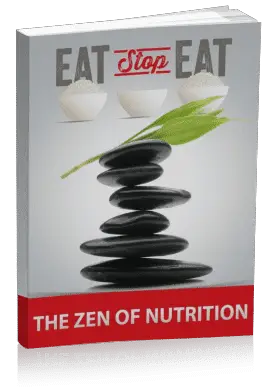

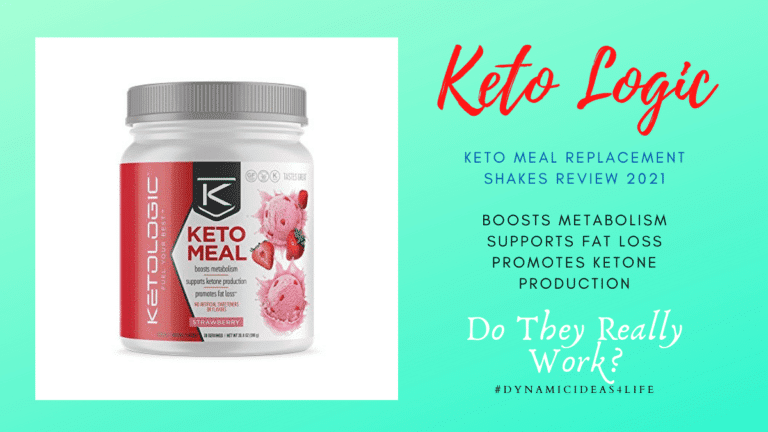

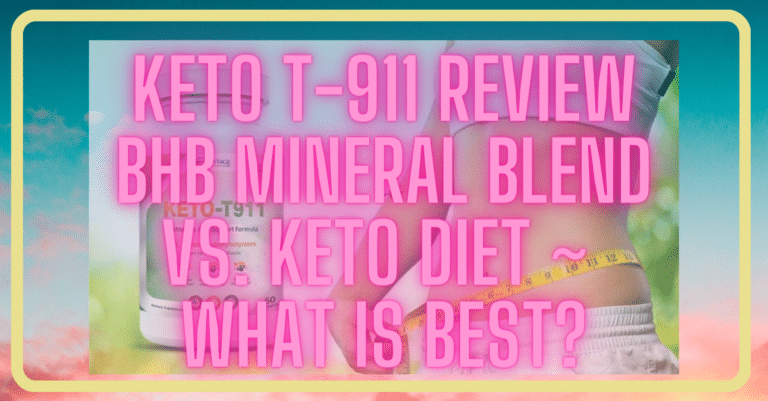
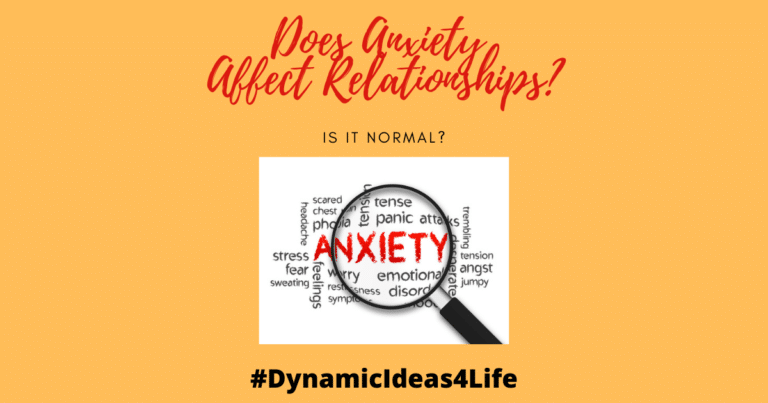

As a vegetarian both the keto and the paleo diet are unavailable to me. I get most of my nutrition from plants and a minority from eggs and dairy. This keeps me lean and healthy.
I also practice intermittent fasting; some days I go as many as 20 hours without eating. This allows my body to enter ketosis, without the need of eating meat. It also allows my digestive system to clear through the peristaltic pulse.
For a couple of years I was very finnicky about what I ate. It was stressful. But after that phase I learned that sticking to plants, fungi, roots and seeds was a fantastic way to ensure a healthy, complete diet without much stress.
Hi Erick, So you don’t actually need to eat meat to do Keto. I would guess it’s similar with the Paleo diet as well. As long as you are not really eating any carbs. I think it’s actually quite interesting in this respect because people think vegetarians miss out on protein but this couldn’t be further than the truth.
I actually heard a few years back that protein in meats comes from the plants eaten by the animals, and plants are actually the purest source of protein.
As for you fasting, I’ve heard this can be good for your immune system I don’t know how true but anyway Fairplay because it must take a lot of patience to do this. I can never go too long without food myself. it really gets to me lol
I am a fan of eating natural foods as opposed to manufactured foods. My mum always taught us that everything in moderation was probably ok. However, I think that to remain healthy we need to avoid refined and heavily processed foods, especially the ones loaded with sugars.
Whenever I have wanted to lose weight in the past, I have always chosen to do it by eating less food. So, first I would cut out all snacking, and then also cut down the portion sizes of my main meals. It worked for me, and I was happy because I still ate what I wanted (minus the sugary snacks) and didn’t have to worry about a specific diet plan.
I agree with Erick, in the comments above, that intermittent fasting is also a great way to lose weight as well as ‘reset’ our bodies’ ability to process the foods we do consume.
Thanks for the information.
Hi Andrew, Yes totally agreed. As I’ve got older I’ve started to realise this more. How unhealthy some popular food products can be. From my findings refined sugars in things like cakes, white bread and pasta is one thing but also another major health concern is too much salt. I mean typically as consumers we really don’t do ourselves any favours really. A lot of people do not even know what is good for them and what isn’t.
So, yes your dieting method I think is a practical method for actually anyone that wants to lose weight. Although, eating less I don’t think is always the most effective thing but eating less crap 100% and I think further to this here is where something like intermittent fasting or Keto might be something to try out. If you have taken the basic steps to lose weight already then you can if neccessary try one of these diets to help lose the extra weight.
They are not for everybody but just my 2 cents.